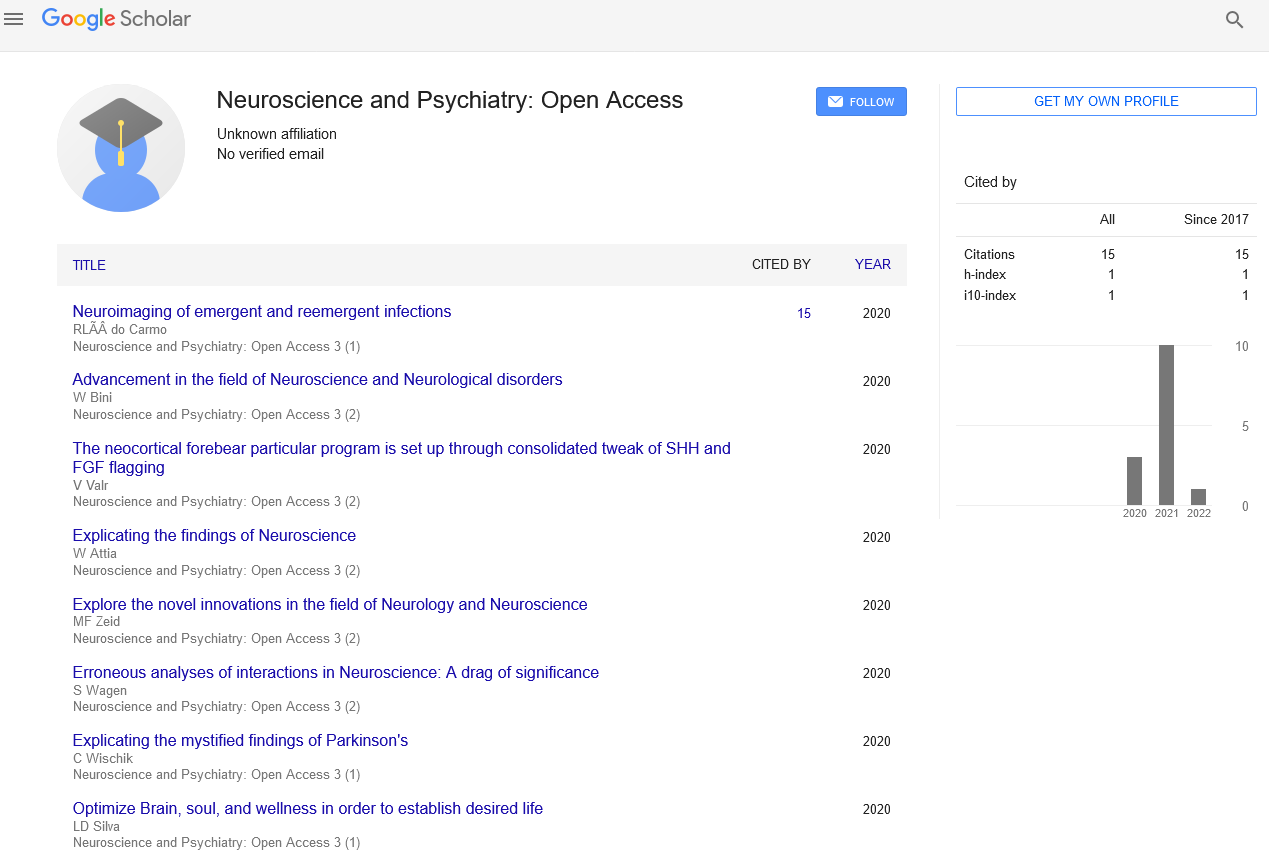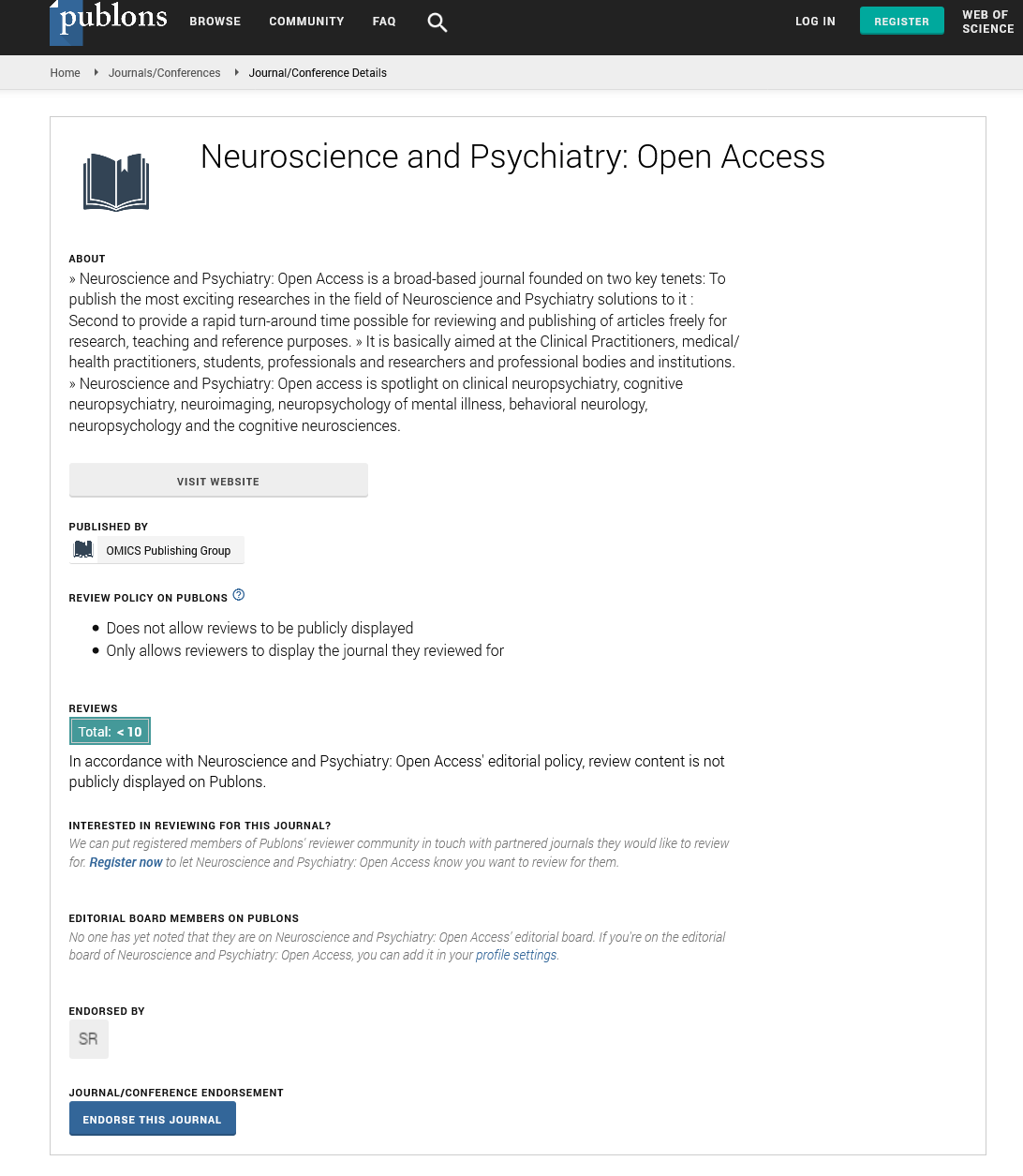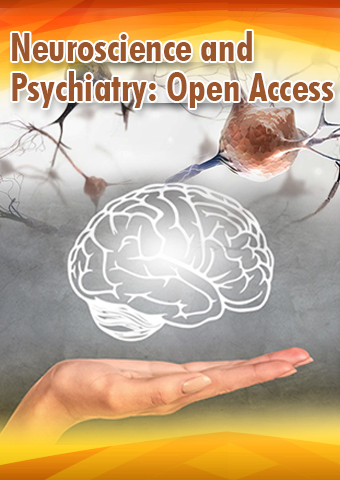Short Communication - Neuroscience and Psychiatry: Open Access (2020) Volume 1, Issue 2
The theoretical possible employ of inhibitor of PDE-5 in Alzheimers disease
Menicagli Roberto
BioMed Research Lab Milano, Italy
Abstract
Alzheimer's disease (AD) is a neurodegenerative disease characterized by a progressive loss of neurons. Recent studies indicate that before the AD, emerges a process of hypometabolism with a simultaneous reduction of the autophagy; this fact promotes the increase of urea in brain This study aims to demonstrate how the administration of PDE-5 inhibitor compounds can counteract this process.
Methods: Study in Human Metabolome Data Base of the main pathways of arginine degradation in the relationship of urea and the NO cycles for the analysis of enzyme equilibria.
Results: Arginine produces urea by arginase and NO by the NO synthase, (NOS.). The NO is fundamental for neuronal activity. These meatabolic pathways are dependent by numerous epigenetic factors Aging causes alterations in phosphorylation and inhibit eNOS. Other pathological conditions are responsible to alterate the mitochondrial’s function. Oxidative stress can accelerate the degradation of NO and meanwhile increase the transformation of arginine into urea.
Discussion: The bibliographic study showed that for example in diabetes that is strongly correlated to the onset of Alzheimer ,this disease favors the presence of endoproducts of advanced glycosylation (AGE) which can also interrupt the activation of eNOS, as with the formation of N-acetylglucosamine adducts (OGIcNAc) with sites of phosphorylation of serine on eNOS. Under these conditions arginine is therefore more easily converted to urea and at the same time it increases its mitochondrial availability towards other metabolic pathways principally the enhancement of the activation state of mTOR with consequent inhibition of the autophagy process. To administrate PDE inhibitors -5, prevents cGMP degradation the "second messenger" to form for NO, and can activate soluble guanylate cyclise to produce cGMP. This process counteracts the conversion of arginine to urea and meanwhile can reactivate autophagy. Recent studies showed that selective PDE5 inhibitors, raise hippocampal levels of GMPc improving memory in rats.
Biography
Roberto Menicagli has completed his Ph.D. at the age of 25 years from Milan University. Postdoctoral studies in biochemistry and molecular genetics, the faculty of biology at Milan University. In this university, he has been professor to Contract, and became responsible for the Project ENEACNR for Environmental Pollution and Biomarkers ,after thirty years ,in industrial biochemistry experience ,as Senior Research in ENIRESEARCH, the most important group of the research in Italy, now, for five years, he is the director of Roma Biomed Research Lab a Private Medical Service Organization. He has published, in this field, more than 20 papers, in many journals, some with Impact Factor, he is also the principal author of 4 international patents, in the field of the environment and biomarkers, and has been serving as an editorial board member of some magazines, concerning the medical sciences.
Publication:
The Study of Intestinal Permeability and its Relationship with Autism, Menicagli R, Marotta O
The Study In Vitro of the Effects of the Inhalant Corticosteroids on Oraland Laryngeal Mucosa, Menicagli R, Marotta O


